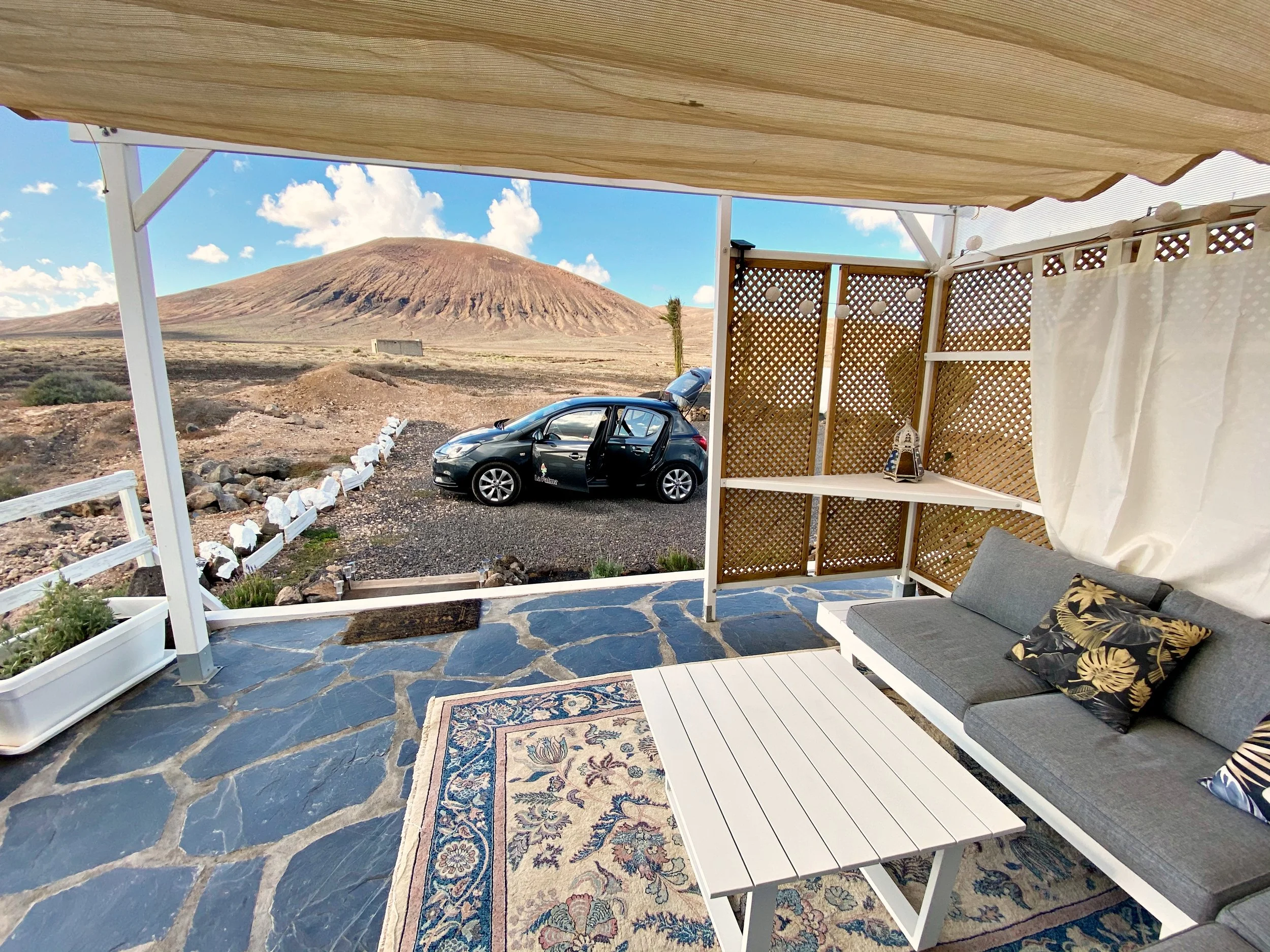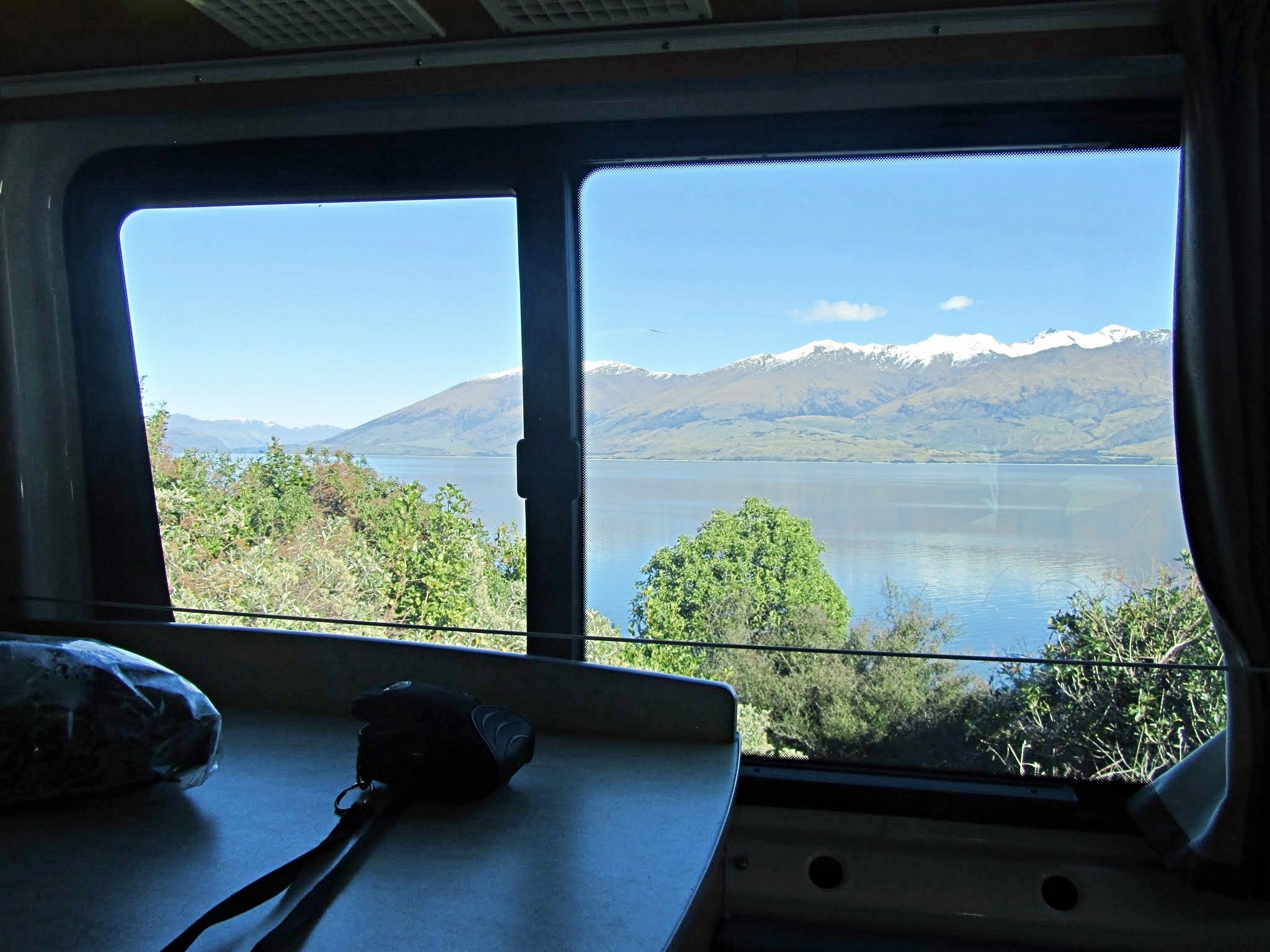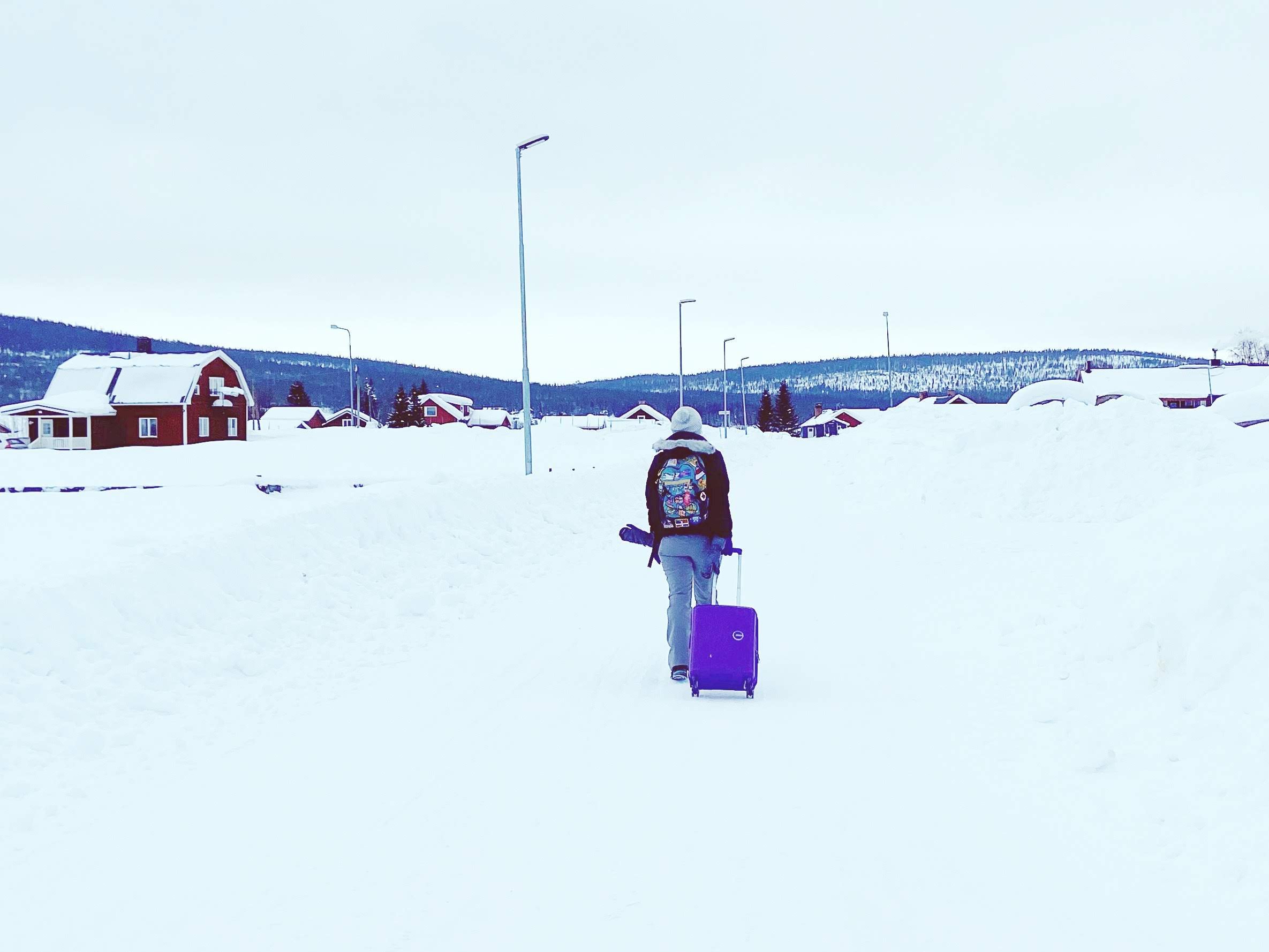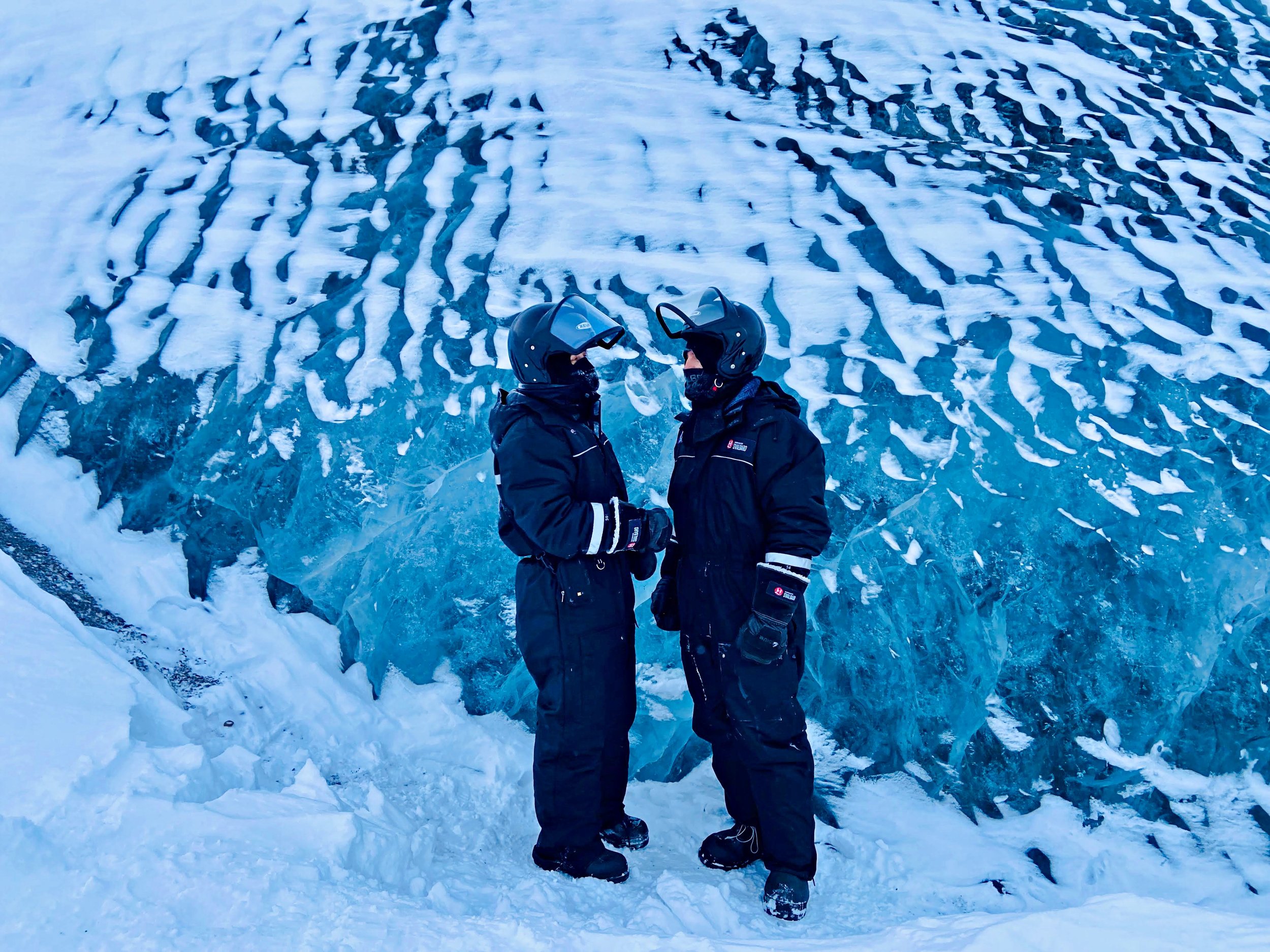How to travel cheaper: Travel for less, experience more
Penguin Trampoline mascot, Macaroni, is excited to have found a great flight deal!
"Travel is the only thing you buy that makes you richer.”
Ah, wise words. But they still won’t pay for your trips!
We constantly hear: “You’re always traveling, you must be rich”. While we’re privileged enough to be able to travel and work from anywhere, we make choices. Most of our extra money is allocated to travel!
But we also know how to travel cheaper, and that makes all the difference.
Not all penguins live on golden sea ice! We aim to encourage everyone to travel a bit more and show that it doesn’t have to be expensive. In fact, we know a lot of people who spend more while staying at home than we do when we travel.
So, follow our little penguin guide!
How to travel on a budget: general advice
DIY
Yes, it takes time and motivation to plan a trip. If you’re doing it all by yourself, — cheering, jumping penguin — you need to be willing to put in the work.
Now, we understand it doesn’t sound fun for everyone, and if you have the financial means, there are great and specialized tour operators out there.
But if you’re reading this article, you’re most likely trying to save on traveling. The good news is: You don’t need a tour operator or travel agent to plan an unforgettable trip. And that will save you big!
We’re lucky to live in a connected world with a plethora of great resources online. Actually, there’s so much information, so many travel blogs and so many booking platforms that it can be overwhelming.
But don’t worry, the tips below, and our travel blog in general, will save you money, time and energy.
So, roll up your sleeves — or feathers — and get to work!
Did you know?
If you need a little help to plan your trip but can’t afford a TO or travel agent, you can try to post a gig on platforms like Fiverr or Upwork. You might find a local who knows your destination inside out and can help you plan for a reasonable fee!
On the picture: Our bunny Ginger helping us plan our next trip.
Travel in low season
This advice might seem like common sense, but do you even know the low season at your destination? It might not be the same as in your country!
For example, Eli went to Costa Rica in September, during what they call the “green season” — basically the rainy season. Now, rainy season in Central America has nothing to do with the Asian monsoon, and will absolutely not prevent you from doing anything.
With the perk of accommodations being much, much cheaper!
In Finnish Lapland, high season is around Christmas, mostly thanks to Santa in Rovaniemi.
High season in most of Europe is usually summer though, so we avoid traveling within the old continent during this time. Prices for flights and accommodations are just insane, and it’s crowded pretty much everywhere — except perhaps in the Nordic countries!
In Southern Europe, summer is also very, very hot. If this is what you’re after, know that you can enjoy great temperatures year-round without going very far or spending a fortune, in places like the Canary Islands — went in January, Portugal — went in October, — or Morocco — went in April.
Office with a volcanic view — the ocean is right on the other side! This top-notch apartment in the Canary Islands was cheaper than €50 a night in January.
Finally, seasons are different in the Northern and Southern hemispheres. Eli went to New Zealand in August (winter), and the camper-van rental was three times cheaper than in summer.
As a rule of thumb, and of course, if your work and family life allow, prefer the shoulder or low seasons.
And if you don’t believe us, we’re talking about €20 flights to the Canary Islands and €35/night private apartment with sea view in the Norwegian fjords. The list is long!
Volunteer
Combine your passion for travel with giving back by volunteering abroad. Organizations like Workaway and WWOOF offer opportunities to exchange your skills for free accommodation and meals.
Whether you're teaching English in Thailand or helping with the rescue of wild animals in Costa Rica, volunteering provides a unique and budget-friendly way to explore new destinations.
How to travel cheaper: save on accommodation
Check accommodation first
If you’re hesitating between several destinations for your next trip, you’ll probably check flights first. It makes sense, but especially for longer stays, your main expense might be accommodation, not transport.
So, start by checking accommodation. It might be wise to book a more expensive flight if the accommodation is much cheaper!
Off the beaten path
Because she found super a cheap accommodation with a sauna and fjord view (with the northern lights as a bonus), Eli and her friends ended up going to Alta, Norway. And they discovered a hidden gem they would have never considered otherwise!
Hotel booking cheaper
If you’d like a certain comfort and absolutely want to stay in a hotel, there are a few things you can do to save on hotel booking.
First, hotel comparison websites can be helpful, but they don’t always display the actual rate you would get by booking directly with the platform.
For example, Booking.com offers a loyalty program called Genius. If you book hotels on the regular, you can reach level 1, 2 and then 3, and get up to 20% off your reservation. This program sometimes offers a free room upgrade or free breakfast, so it’s worth giving it a try. Also, look for “mobile-only” fares when booking on your phone.
However, as much as we like Booking.com, it can be cheaper to book directly with the hotel. Some hotels prefer to avoid paying a commission to reservation platforms and offer incentives such as free breakfast, or their own loyalty program, for direct bookings.
It really depends, so check both.
If you want to indulge in a luxury accommodation, booking a better room (executive, with a view, suite…) in a four-star hotel is often a better deal than a standard room in a five-star.
And don’t discard hostels just yet. Many offer private rooms with a private bathroom for a cheaper price than a regular hotel. And it’s not just for young people!
If you have the option to book “free cancellation”, go for it. Then, closer to your arrival date, check the local accommodations again. You might end up finding a crazy last-minute deal!
Our view from an amazing, last-minute deal accommodation (literally booked the night before) in the Lofoten
Book an accommodation with a kitchen
We get it, maybe you don’t want to cook when you’re on holidays.
For us, since we travel on the regular, it’s not just a way to travel cheaper, but we actually want to cook at “home”! After an exhausting hike or day out, there’s nothing nicer than coming back to a cozy accommodation and cook a homemade meal with local ingredients. Pure hygge!
In expensive countries like the Nordic countries, it’s soooo much cheaper than eating out.
So, book an accommodation with a kitchen. It can be a private apartment — Booking or Airbnb are great places to start —, a shared apartment, a hostel, a campervan or a campsite.
On Airbnb and Booking, you might be able to get a great deal for new accommodations that don’t have many reviews yet.
You can also check for weekly and monthly discounts, if you’re planning to stay longer.
On the picture: This stunning Airbnb in the heart of San Francisco was incredibly cheap and with a welcome gift, as we were the first guests!
Stay with a local or house-sit
If your budget is too tight for a private apartment, Airbnb also offers the option to rent a room at someone’s place. It’s a great way to meet locals and get some insider tips!
You can also consider Couchsurfing, which is basically a global network to find or offer a place to stay anywhere in the world.
Moreover, you can offer your house/pet sitting services on websites like TrustedHousesitters.
Swap houses
If you own a property, consider swapping houses! Platforms like Homexchange facilitate this type of experience, with a rating system to filter only reliable people.
This is a great way to travel for less, for short or long stays. And, who knows, you might meet your Jude Law or your Kate Winslet! (Eli owns the reference here and is not sorry).
Camp
We understand it’s not everyone’s cup of tea, but for the nature addicts out there, camping is a fantastic way to travel on a budget.
And, to us, sipping your morning coffee, wrapped in your sleeping bag, with a view on the sea, a forest, a snow-capped mountain or a friendly elk family, is more luxurious than any fancy hotel.
Check if the country you’re planning to visit allows free camping. For example, you can camp anywhere in countries like Sweden, Norway or Finland, as long as you’re not too close to someone’s property. Make sure you check local regulations, and, of course, leave nothing but your footprints.
If free camping is not allowed, you can book campsites. For example, most national parks offer campgrounds. Even if you choose wild camping (when allowed), it’s a good idea to stop at a campsite from time to time and enjoy the facilities. A bathroom and a kitchen can go a long way! And you might have to if the weather is bad, or if you’re in bear territory.
If you’re looking for something more comfortable, you can upgrade to a campervan. It will still be cheaper than car rental + accommodation, with the perk of not having to pack and unpack every two days!
Imagine waking up to this view! South Island, New Zealand
How to travel for less: save on flights and transport
Where to look for a flight deal
Our first advice is to avoid third-parties like eDreams. While they can be useful to compare fares, they add an admin fee that you won’t see until the end. So, yes, they SEEM cheaper when you search, but they’re not.
Also, airline comparators might not include all airlines, especially low-cost.
So, while they’re useful to find out which airlines fly to your coveted destination, it might be more reliable to check on the destination airport website or with the tourism board, and then book directly with the airline.
Some websites like Omio will find the cheapest way to get there, even if you travel through 3 continents and your trip takes 25 hours instead of 6. Hey, you wanted cheap!
You can also try to change currency to see if it’s cheaper, for example in dollars or euros.
Just make sure to erase your cookies and use an incognito window — oh yes, it’s a very private affair — to prevent the system to detect that you’re interested and increase the price.
Cheapest days to fly and book
While there are a lot of rumors around the cheapest days to fly, it really depends on the destination. Obviously, weekends and holidays tend to be more expensive!
Same for the best time to book. Sometimes, it’s cheaper to book in advance, and sometimes, it’s better to wait closer to the dates and keep an eye on it — or create an alert on websites like Scott’s Cheap Flights. There’s no rule of thumb, and it’s all based on complex occupancy calculations called “Yield Management” (also used in the hotel industry).
How to save on luggage
When comparing airlines, it’s essential to consider the luggage policy. Does the fare include carry-on? Checked luggage? If not, how much is it? Especially for low-cost airlines, this fee can double or triple the initial price of the flight!
Sometimes, a 10 kg, small carry-on will be almost as expensive as a 23 kg checked-in suitcase!
If your travel plans involve two different airlines, bear in mind that you’ll have to pay a luggage fee twice. So, even if traveling with one single airline might be more expensive, it might actually be cheaper if you consider the luggage fee!
Plus, in case of any delay or issue, they’ll rebook you. If you booked two different airlines, you’re on your own.
Of course, pack as light as possible. Depending on the destination, it might be cheaper to buy some stuff there than packing them.
Check if your accommodation has a washing-machine or laundry room, so you don’t have to pack as much. You can also handwash!
Packing light will help you save money and avoid to drag heavy suitcases around… Eli here in Jukkasjärvi, Swedish Lapland
Snag flight deals
Many airlines offer deals on the regular, so make sure to subscribe to their newsletter. For example, Black Friday/Cyber Monday is our favorite time to book flight deals!
If you tend to use the same airline, or alliance of airlines, you can sign up for airline rewards programs and collect miles or points through credit card sign-up bonuses. We often use Vueling’s Avios program.
Navigate the flight booking maze
You’ve finally landed — note the pun — on a flight? Congrats, now, let’s book it!
Nowadays, booking a flight looks like the maze of the Overlook. Ok, we’re exaggerating a little, but if you’re not used to booking flights, good luck.
Basically, keep your eyes on the price, as all airlines will try to add stuff: luggage, meals, insurance, special luggage, credit card fee and yep, even car rental and hotel booking at the end!
Most airlines offer different “rates”, including things like priority boarding, choice of seats, possibility to change dates, included luggage, etc. Make your calculation and see what’s best for your needs.
It’s always cheaper to book luggage when booking the flight than later on, so do some thinking about what to pack.
Finally, some airlines will charge for checking-in at the airport, so make sure you do that online prior to your trip.
What if I don’t fly?
Penguins can’t fly, so they might be more comfortable riding the train or the bus!
If your destination is not too far, it might be a more environmentally-friendly approach. And there’s nothing more poetic than a train ride (says Eli)!
Unfortunately, the train can more expensive than flying, but you don’t have to pay for luggage!
Once at your destination, you can ditch the rental car and embrace public transportation like a true local. Not only is it more eco-friendly, but it's also significantly cheaper than shelling out for taxis or rental fees. From buses and trains to bikes and ferries, public transportation opens up a world of affordable travel possibilities.
Penguin Trampoline tip:
Overnight trains are a great way to save on accommodation AND transport! You can book your own cabin or sleep on a passenger seat. Shared bathrooms are available. Just make sure you don’t forget your key in your cabin when it’s -30º C between wagons, right, Eli?
For example, you can ride the Santa Claus Express, an overnight train between Helsinki and Rovaniemi!
If you do rent a car, you can use comparison platforms like DiscoverCars to find the best deals. Just make sure to read the fine print, especially regarding insurance and the deposit amount. Most car rental companies or booking platforms offer a Premium coverage. The only one we ever had to use was booked through Booking.com, and we got our money back shortly after sending them the requested documents.
For not so touristy destinations, you might have to do an online search and book directly with local car rental companies.
Do your research for the price of gas and tolls. Each country has a different system!
Travel cheaper: save on activities and meals
Visit markets
Local markets are awesome. Not just for the food, but to really feel the pulse of a country. It’s a treat for all senses!
If your accommodation has a kitchen, ask around for the best farmers markets to get the freshest produce.
Of course, you can also ask locals where THEY go to save on groceries.
Optimize your meals
As mentioned, cooking your own meal will help you save a lot when traveling.
If your accommodation has a kitchen, shared or private, make the most of it.
And for lunch, you can prepare a packed lunch so you don’t have to interrupt your hike or sightseeing day!
You can bring a few staples — if allowed by travel regulations — from your home country if you’re visiting an expensive destination, and buy fresh produce onsite. Don’t go crazy if you’re flying, check-in luggage is expensive!
If you booked a hotel, it might be smart to have breakfast there, even if there is a supplement.
In Nordic countries, for example, eating out is so expensive that we usually book a buffet breakfast to cover breakfast and lunch. Brunch, basically! Plus, they usually serve smoked salmon. Yum!
Eat local
We strongly encourage you to eat local food, as it’s a key part of any culture. Of course, traditional restaurants can be expensive, but it’s not the only way to try culinary delights.
You can try street food, cook at your accommodation, or book a “eat with locals” dinner at someone’s house, if your destination offers these types of experiences.
Obviously, avoid the tourist hotspots and follow the locals!
Look for free activities
Of course, you can book excursions and tours, but there are so many things you can do for free!
Personally, we love hiking, which is normally free — unless there’s a national park fee, or the locals charge their own, like in the Faroe Islands. But it’s still cheap, especially if you bring your picnic!
Many cities offer a monthly free museum day, and free city tours organized by volunteers.
You’ll find plenty of ideas online for major destinations and large cities, for example on Tripadvisor.
Did you know?
You can check Atlas Obscura for original — ok, sometimes really weird — ideas. Many are free!
On the picture: Jake admiring Atlas Obscura sights in Austin, after taking 3 different buses… Sense the sarcasm!
Save on travel insurance
Ah, a question we hear all the time: Do I need travel insurance?
Honestly, it depends. If your flights were cheap, your accommodation comes with free cancellation, and you’re from the UE traveling within the UE, maybe not.
You’ll have your EU insurance card for any health issue, so you might want to chance it for cancellation.
However, if your trip is expensive and overseas, we recommend a travel insurance, both for cancellation and health. In countries like the US, you can spend several hundreds of dollars for a simple doctor visit!
Check out websites like Heymondo for affordable insurance packages depending on what you need — with an exclusive 5% discount for Penguin Trampoline readers — and make sure to read what’s covered to see if it’s worth it.
For example, some activities considered “hazardous”, such as paragliding, might not be included.
Finally, some credit cards cover flight purchases, so you might want to check that too.
In Svalbard, we had a snowmobile wreck. Fortunately, we were just a little shaken-up and bruised, but it’s in these situations that you understand the importance of a travel insurance covering all activities!
With these tips in your arsenal, tried and tested by Penguin Trampoline, you're well-equipped to travel cheaper, smarter, and with a dash of adventure. So, go forth and explore the world without breaking the bank.
After all, the best adventures often come with the smallest price tags. Safe, and cheap travels to all our traveling penguins out there!












